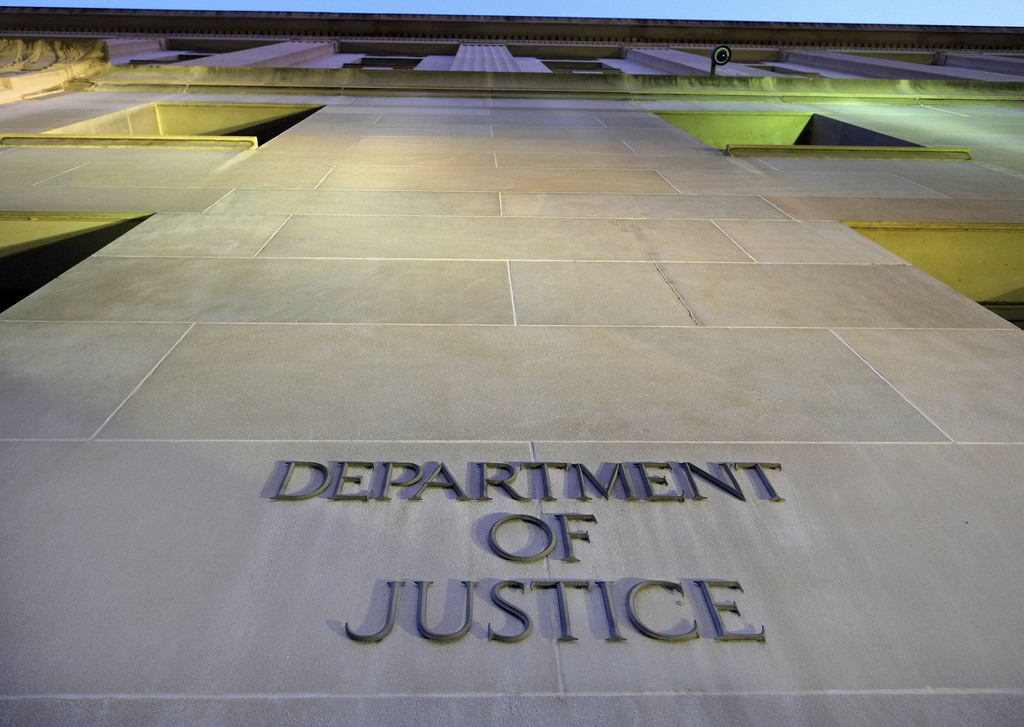Uncertainty weighs on Swiss bank staff

Thousands of Swiss bank workers have seen their data handed over to justice authorities in the United States and are now living with a considerable amount of uncertainty. Only a few, however, have taken action for fear of losing their jobs.
“The situation is definitely not what has sometimes been written in the papers – that employees of Swiss banks can no longer travel to the US,” said Balz Stückelberger, head of the Swiss Bank Employers’ Association.
“There aren’t any signs that the US wants to arrest all Swiss bankers. They certainly don’t want to fill up their prisons like that.”
Stückelberger can’t rule out, however, that some individuals will have to appear before the US justice authorities. “Uncertainty certainly exists among bank employees and we can’t simply ignore it.”
Two years ago the US Department of Justice (DoJ) started investigating about ten Swiss banks suspected of helping thousands of wealthy Americans illegally evade taxes.
The DoJ demanded that Swiss banks supply it with all the data of controversial transactions, including the names of employees who dealt with clients subject to US tax laws.

More
The human cost of bank data exchange
Official authorisation
In April 2012, the Swiss government authorised the banks to collaborate with the DoJ and to provide “all the information necessary to protect their interests”. A refusal to do so would have meant the end of those banks under investigation.
“Even if they don’t have a physical presence in the US, every bank has to make payments in dollars,” explained Pierre Louis Manfrini, a lawyer and professor at the Swiss Graduate School of Public Administration in Lausanne.
“To gain access to international markets, they need a clearing account in dollars in London or New York. Now, if you’re on an American blacklist, you can no longer carry out payments in dollars. You might as well close down.”
Just last year, the names of at least 10,000 employees or former employees caught in the DoJ crosshairs were handed over to Washington.
Initially, many of these people were not informed in advance about the transfer of their data and therefore couldn’t bring a legal challenge. The data protection commissioner intervened, demanding all banks respect the law regarding information and transparency.
2009: Switzerland’s biggest bank UBS agrees to turn over more than 4,450 client names and pay a $780 million fine after admitting to criminal wrongdoing in selling tax-evasion services to wealthy Americans.
July 2011: The second-biggest bank, Credit Suisse, comes under criminal investigation by US. The bank later makes a provision for a potential fine of CHF295 million.
February 2012: US justice department indicts Wegelin, Switzerland’s oldest private bank, on charges that it enabled wealthy Americans to evade taxes on at least $1.2 billion hidden in offshore accounts.
June 2012: US treasury department reaches a tentative agreement with Switzerland to help banks comply with US tax evasion regulations.
June 2012: Bank Julius Baer hands 2,500 employee names to US authorities in a bid to free itself from the tax probe, according to lawyers.
August 2012: Global bank HSBC hands over details of current and former employees to the US authorities.
November 2012: Private bank Pictet confirms it is also under investigation by the US.
December 2012: Two bankers and one former employee of the Zürcher Kantonalbank charged by US, accused of helping US clients avoid taxes.
January 2013: Wegelin private bank shuts its doors, following a guilty plea to charges of helping wealthy Americans evade taxes through secret accounts. It agrees to pay nearly $58 million in fines on top of $16.3 million in forfeitures already obtained by the authorities.
May 2013: Swiss government presents bill to parliament that would let Swiss banks hand over internal information to US to avoid threatened criminal charges – though the banks still face fines likely to total billions of dollars.
The bill aims to save the banks from heavier punishment in the United States for helping wealthy tax cheats, by sidestepping its secrecy laws to let bankers disclose data to US prosecutors.
June 2013: Parliament rejects the so-called Lex USA bill, telling the government to make the decision.
July 3, 2013: The government announces a new data transfer framework for banks. Finance Minister Eveline Widmer-Schlumpf presents a “plan B”, under which banks which cooperated with the United States authorities would be deemed not to have violated Article 271 of the penal code, which forbids collaboration with foreign authorities.
Fear of losing job
After extensive negotiations, on May 29 the Swiss Bank Employees’ Association, the Swiss Bank Employers’ Association and the Swiss Bankers Association reached an agreement that offered the employees better protection against the consequences of the handing over of their data.
Under the agreement, employers have pledged to inform staff in advance about any documents concerning them, to offer them financial and legal assistance in case of proceedings by the US justice authorities and also to guarantee protection to those workers involved in US operations against discrimination and dismissal.
“Employers are now bound to respect the rules of information and transparency. The problem is that employees do not make use of their right to oppose the transmission of their data for fear of losing their job,” said Denise Chervet, secretary-general of the Swiss Bank Employees’ Association.
So far, no more than about 20 people have opposed the handing over of their names, mainly staff who have left or retired.
Risk remains
The agreement does not, however, protect workers from possible criminal prosecution by the United States.
Despite intense negotiations, the Swiss government has failed to reach a global deal with Washington to clear up what happened in the past: the US authorities still intend to continue their investigations.
“The United States are not primarily interested in the people themselves. They want information from the banks about their activities with American clients,” said Stückelberger.
“The main purpose of the data requested is to help clarify these activities. But the problem must be taken seriously, and a risk remains for employees.”
Manfrini also sees risks. “Among the names handed over to the United States are those of secretaries who simply sent an email for their boss. The American justice authorities are definitely not interested in arresting a secretary, but if one of these secretaries travels to the US, they risk facing a series of complications. Personally, I recommend people on the list to stay at home.”
Lex USA
The uncertainty felt by bank workers certainly didn’t ease after the Swiss parliament’s rejection in June of the “Lex USA”, a deal the Swiss cabinet hoped would fix the legal conditions for handing over data and solve the tax evasion dispute between the two countries.
At the beginning of July, Finance Minister Eveline Widmer-Schlumpf presented a “plan B”, under which the cabinet agreed to give banks special permission to cooperate with the United States authorities, paving the way for financial institutions to share data in a bid to avoid criminal charges for allegedly helping tax dodgers.
This solution does not convince Manfrini. “The cabinet asked parliament to adopt a law to authorise the handing over of data to the US. Parliament refused, and now the cabinet wants to authorise the transfer all the same. I would say there’s a serious problem about the legality of this.”
His scepticism is shared by Chervet. “After the rejection of the Lex USA, the situation has remained problematic not only for employees – already facing continual restructuring – but also for the entire financial scene, which needs certainty, which has always been one of its selling points,” she said.
“The problems with the US have to be resolved as soon as possible, so that the financial sector can regain this certainty.”
It remains to be seen how the United States will react to plan B.
(Translated from Italian by Thomas Stephens)

In compliance with the JTI standards
More: SWI swissinfo.ch certified by the Journalism Trust Initiative










You can find an overview of ongoing debates with our journalists here . Please join us!
If you want to start a conversation about a topic raised in this article or want to report factual errors, email us at english@swissinfo.ch.